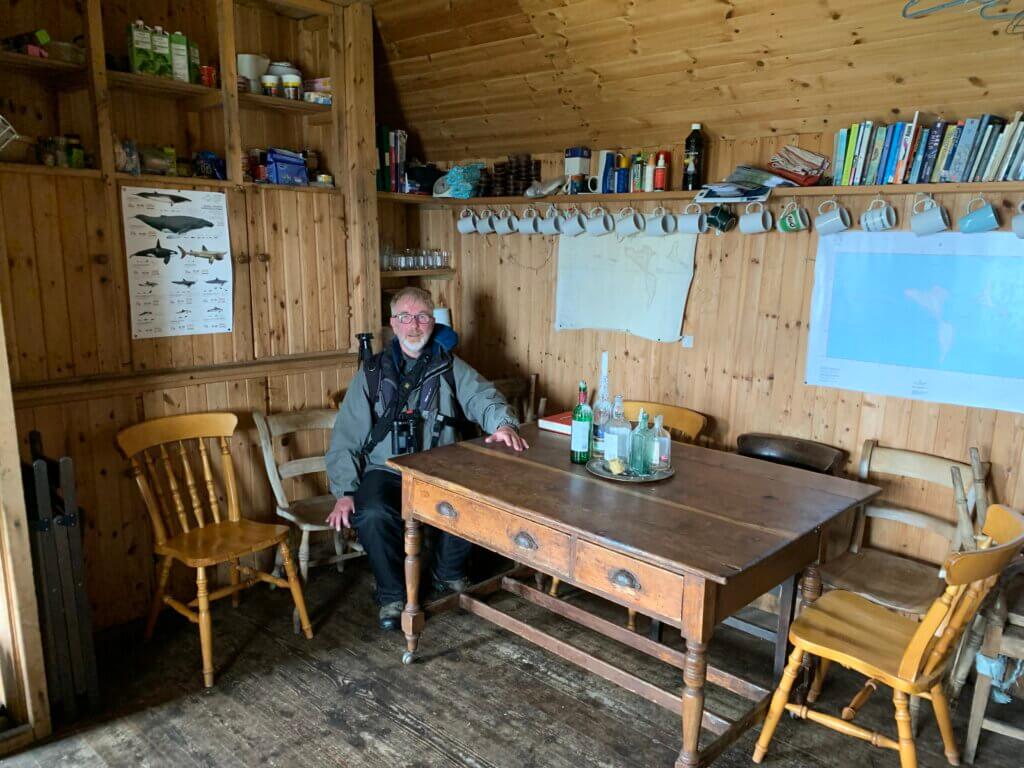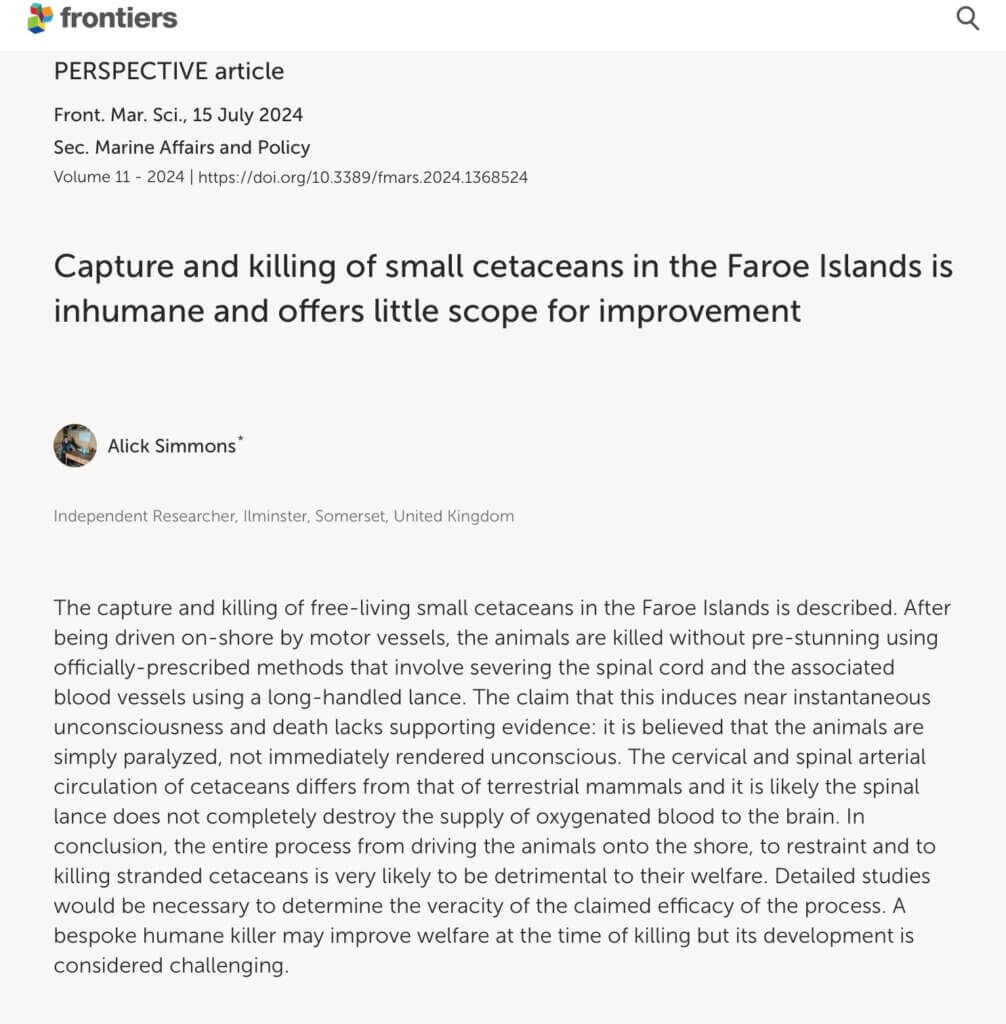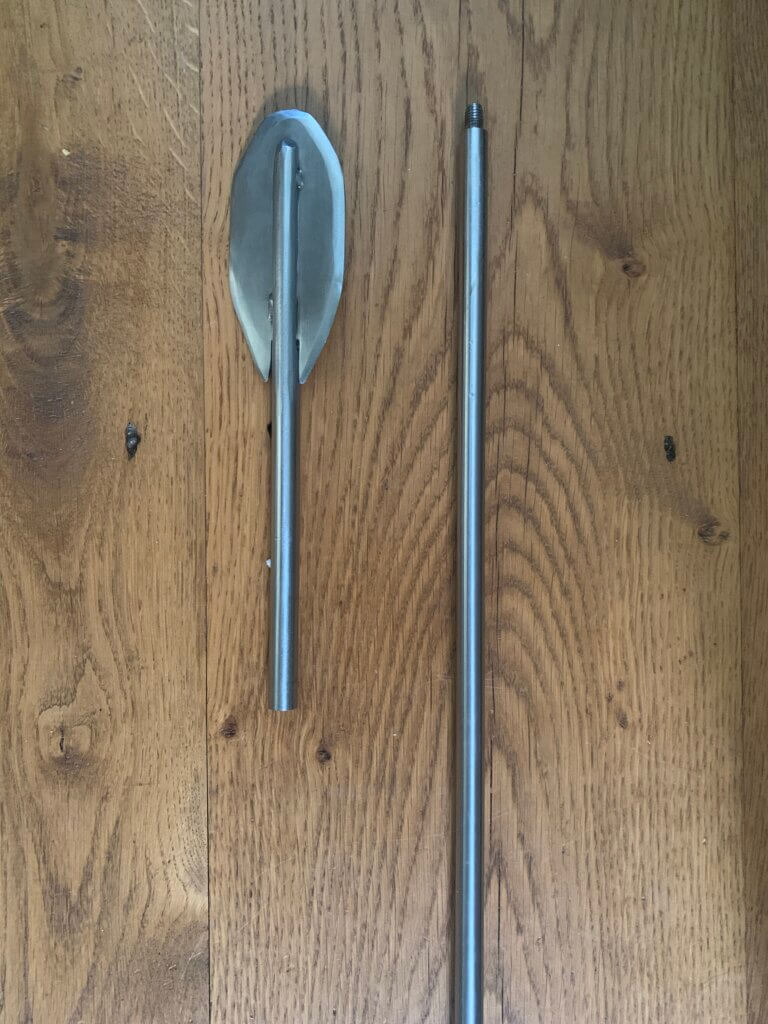
Alick Simmons spent most of his career in public service serving as the UK Food Standards Agency’s Veterinary Director (2004-2007) and the UK Government’s Deputy Chief Veterinary Officer (2007-2015).
He is the current chair of the Zoological Society of London’s Ethics Committee on Animal Research and a member of the Wild Animal Welfare Committee. He sits as an independent member of both the RSPB’s Ethics Advisory Committee and the National Trust’s Wildlife Management Advisory Group. He is former chair of the Universities Federation for Animal Welfare and the Humane Slaughter Association.
He is an avid amateur naturalist.
His book Treated Like Animals: improving the lives of the creatures we own, eat and use was published by Pelagic Publishing in 2023 and reviewed on this blog – click here.
The Faroe Islands’ Grindadráp: whose business is it?
A few months ago, I had an article published in a science journal. There’s nothing particularly remarkable about that. Except it was about the capture and killing of small cetaceans in a country I’ve never visited. Here it is, It’s open access: https://doi.org/10.3389/fmars.2024.1368524:

Given my background (a government veterinarian, mainly based in the UK), writing about the welfare of cetaceans might seem a little odd. Permit me to explain.
My career controlling disease in farmed animals and the protection of public health inevitably involved the killing of both diseased and healthy animals. That, along with protracted periods working on government policy and a period chairing the Humane Slaughter Association (https://www.hsa.org.uk), meant I had amassed considerable knowledge of and experience in humane slaughter. And since leaving public service, I’ve also taken a keen interest in the welfare of wildlife. Hence the book, Treated Like Animals (reviewed here).
About a year ago, my interest in the traditional capture and killing of small cetaceans in the Faroe Islands, the Grindadráp, was piqued by a series of videos (eg click here). Questions that immediately sprung to mind were ‘Is this humane?’ and ‘For pity’s sake, why?’
Answering the first question is not quite as straightforward as it looks. I had to delve deep into anatomy and physiology texts for both terrestrial mammals and cetaceans – the latter is quite limited but it soon became obvious that the differences were profound and pertinent to understanding the Grindadráp. I was keen to understand the process – to the extent that with the help of EBay, my son and his friend, the welder, I made a copy of the spinal lance used to kill the pilot whales.

And if you read the paper, it quickly becomes clear that the differences in cetacean anatomy and physiology, along with the events leading up to the killing, mean the process from start to finish is inhumane. It would be superfluous to detail the shortcomings here since I believe the article sets these out clearly. However, the very nature of a science journal requires objectivity and detachment. Emotion shouldn’t come into it. But what do I really think? In other words, what’s the answer to the second question, ‘For pity’s sake, why?’
Why, indeed? Like bull-fighting and fox-hunting, the egregious and gut-churning spectacle of the Grindadráp is defended because it is a tradition – it’s been going on for hundreds of years and, it is argued, is an important source of protein for the islanders. However, like the former two pursuits, it is demonstrably inhumane and, objectively, given the alternatives of safer food like fish or lamb – both of which are abundant on the Faroes, it is reasonable to ask why continue with such a barbaric practice?
The Faroe Islanders’ response to the increasing chorus of criticism is generally ‘This is what we do and it’s none of your business’. Which might have been fair comment half a century ago but it’s not something we should accept in 2024. There are reasons for this:
- Wildlife is for everyone. The law varies around the world but, in general, the position is that either wildlife belongs to no one or it belongs to everybody. Which pretty much amounts to the same thing. It does mean that we, the citizen, should get a say, particularly when it’s a free-ranging animal that could, potentially, turn up anywhere. In other words, in our globalised society, we need to be able to hold each other to account.
- The three species of cetaceans killed on the Faroes are listed by the International Union for the Conservation of Nature as being of Least Concern but merely because an animal is abundant doesn’t mean it’s a free-for-all. That was tried with the Great Auk and the Blue Whale and it didn’t turn out well.
- The principles of humane killing which cover the entire process from gathering through to killing is not just for farmed animals and for research animals. They apply or should apply to all animals including wildlife. I’m not naïve – standards that apply to cattle in a slaughterhouse are impractical on open range or in the open seas but if a process that is demonstrably inhumane can’t be improved on, then stop.
As we enter an anthropogenically-driven biodiversity crisis, the international focus on the Grindadráp is, I hope, indicative of an enduring change in public attitude. That is, a growing intolerance of the large scale killing of wildlife for whatever reason and wherever it takes place. There was, no doubt, some historical and existential rationale for much of this. But time moves on and attitudes change – tradition cannot be used to justify gross cruelty. It’s time to say ‘enough’.
[registration_form]
The ‘it’s none of your business’ argument, often coupled with allegations of neocolonialism is frequently rolled out to defend unethical practices but if something is wrong it is wrong.
The Faroese are clearly reluctant to bow to pressure on this but hopefully your study will add to the pressure on them to recognise that the Grindadráp has had its day and needs to be consigned to history.
Thank you. FWIW, I think evidence of inhumaneness is unlikely to alter the minds of those involved – like participants in fox hunting, scrutiny and criticism just stiffens their resolve. What I believe will happen is that increasing awareness of this practice will increase the numbers opposed and that the numbers of people being ‘recruited ‘ will fall. Ultimately the practice will die out.
I notice Alick makes the point about availability of fish to the islanders instead. I don’t have a decided view on this (I eat some fish), but fishing (esp’ industrial fishing) is exponentially the largest hunting and killing of wildlife, with lots of associated ecological impacts too. Is the killing of fish by trawlers and other large scale fishing vessels humane? Do we have a non-mammal/bird blind-spot on these issues?
A thoughtful comment, thank you. There is no doubt we have ignored the welfare of fish. Despite the growing evidence of sentience in fish, their welfare in almost circumstances (aquaculture, ocean fishing and angling) has been given too little attention. That does seem to be changing, however, and research into to better understand the experience of sea fish during catching is being funded.
Pondering this, surely a big issue is the sort of life people are living now – in the case of whaling the Japanese, Icelanders and Faeroese are all living first world lives with washing machines, fridges cars etc and no risk of starvation if local food sources fail (which certainly would have been the case in the past). I do feel this is a strong reason for a change in attitude.
An alternative view might be that while consumerism draws such societies away from their roots, continuing with the Grind and other ‘traditions’ maintains a link with the past.
There’s evidence that young Faroese, as they strive to maintain and develop their islander identity, are more protective of the Grind than older generations.
I am not sure that you have addressed the economic “need” adequately? It has been a couple of decades since I was on the islands, but my understanding was that just about all of the fish were used for export for much needed revenue. It would be helpful to know if this really is the case. I also understood that soil erosion through over-grazing had historically been a problem so that sheep numbers had been controlled – are there really enough sheep to feed everyone? Finally, it is also my understanding that the whale meat is shared out across the community, how much protein does this account for in terms of what is available and what is required? An interesting article and all these things will need to be resolved I suspect.
Thank you. These are interesting challenges. I’ll deal with them point by point:
1. The Faroes Islands GDP/head is $54, 833 (2017; source: https://hagstova.fo/en/economy/national-accounts/gdp-and-main-figures). This compares favourably to the UK ($51, 075).
2. Fish represents 90% of export revenue. However, the service sector accounts for 55% of GDP (and 70% of employment) although fishing and aquaculture are important.
3. I don’t know whether sheep numbers are regulated but in most places where sheep are kept in great numbers overgrazing can be a problem. Like the UK, sheep are not native to the Faroes.
4. Sheep meat from natively grown sheep are rarely for sale – people just grow and slaughter their own. Imported meat including lamb is readily available.
5. Whale meat is rarely sold. Instead it is distributed free to the islanders.
The Faroes have recovered from a significant recession in the 1990s and exports have contributed greatly to the recovery. The proportion of the population below the poverty line appears to be well below that of the UK (10.1% vs 21%) suggesting that they are doing something right. But like all developed economies the Faroes do not exist in isolation and hence imports and exports are important elements.
It is clear to me that the contribution that the Grind makes to the economy and the food supply is minimal. When one takes account of the cruelty involved and the safety of the whale meat (the meat and blubber contain high levels of PCBs and mercury), the case for continuing the Grind is vanishingly thin.
Thanks, excellent response. Plenty to think about there. It is not clear to me how this will get resolved given it is unlikely there will be a voluntary stop and one could imagine Copenhagen would not be comfortable forcing a stop.
You are welcome.
I wrote this to stimulate debate so it’s good that people are engaging.
I’m not sure that Copenhagen (ie the Danish government) has much of a say here. The Faroes are an autonomous territory of the Kingdom of Denmark and thus is in control of its own governance. Copenhagen has declined to get involved. However, curiously, while in 1973 the Faroe Islands declined to join Denmark in entering the EU European, as Danish citizens, Faroe Islanders are still considered EU citizens! What a pity that a similar choice wasn’t available to us in 2016.
I think it is unlikely that legal or diplomatic means will stop the Grind. Instead, growing international oppobrium backed by evidence will demonstrate to the islanders that it is they that are out of step with public opinion and gradually fewer and fewer people will participate. At that point, when the vast majority of islanders are opposed or indifferent, it will stop – perhaps backed by a legal prohibition. That is, similar to the slow but certain death of bullfighting and fox hunting. It will be a long haul. It took all of 40 years to agree to stop killing great whales.
Alick,
I came a cross a couple of refs that may be of interest to you, by the great Kenneth Williamson.
The economic importance of sea-fowl in the Faroe Islands. IBIS, 1945, pages 249-269.
The economic and Ethnological Importance of the Caaing Whale, Globicephala melaena Traill, in the Faroe Islands by K Williamson
North Western Naturalist, 1945 vol 20 pgs 118-136.
If these are new to you, I would be happy for Mark to forward my email to you in order to explore the topic further.
Alistair
Yes, please.
There’s an account of the Grind in The Island of Sheep by John Buchan – it’s a novel but it’s clear that Buchan witnessed the Grind at some point. Given it was written in the 1930s it doesn’t deal with the welfare of the pilot whales but revels in the machismo of the event.